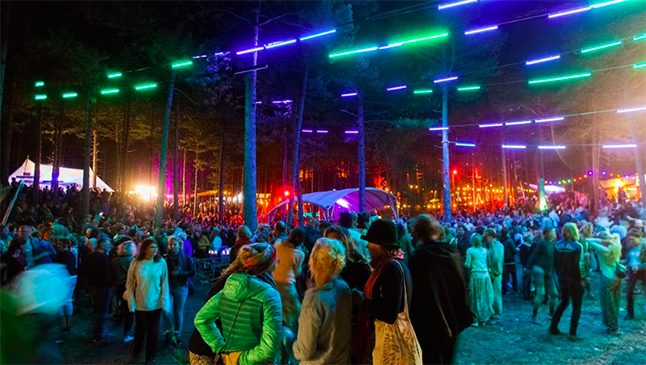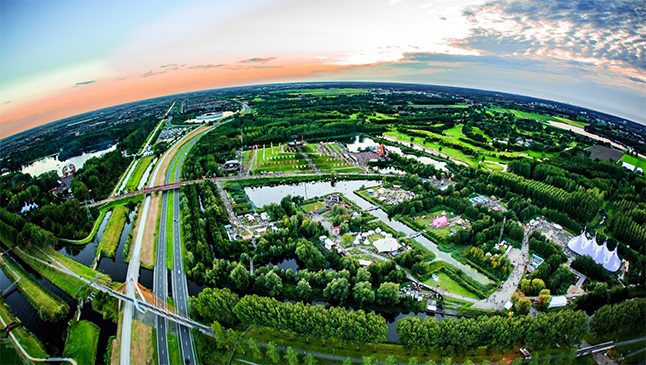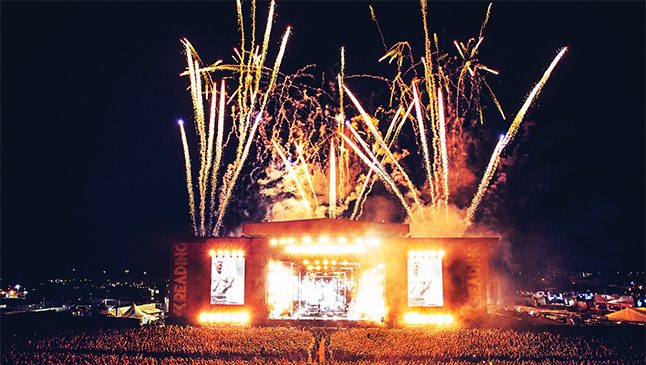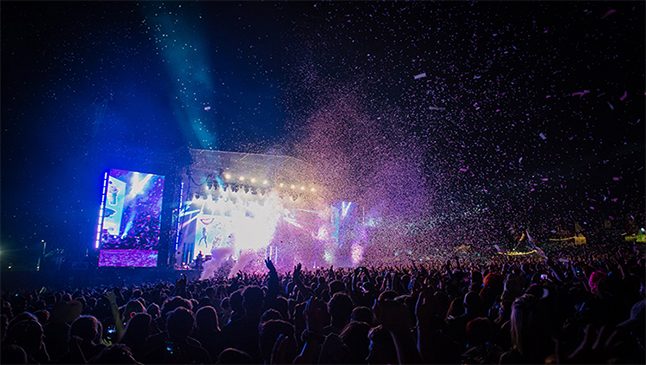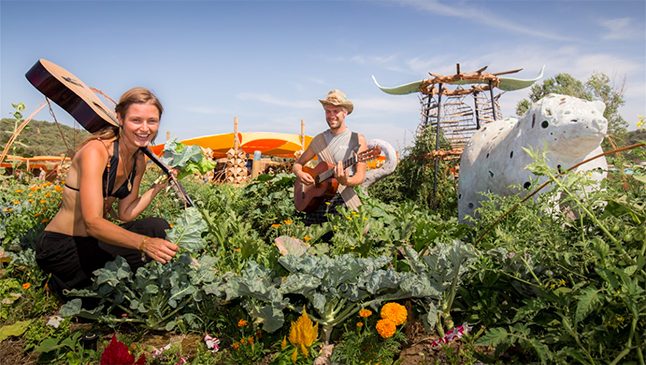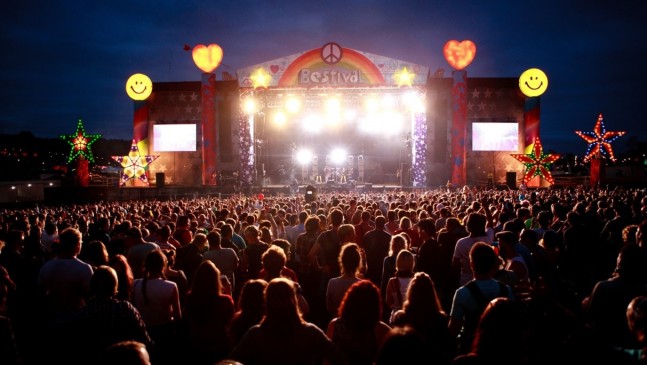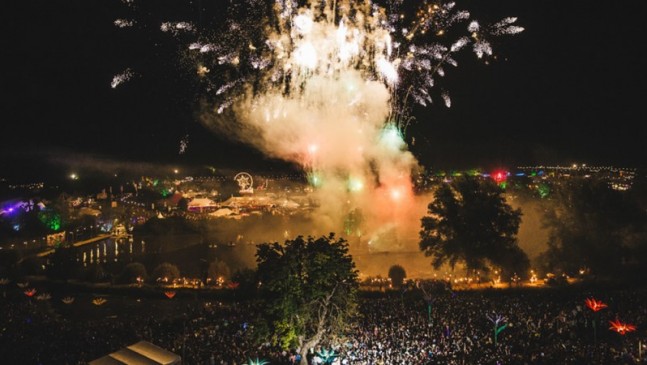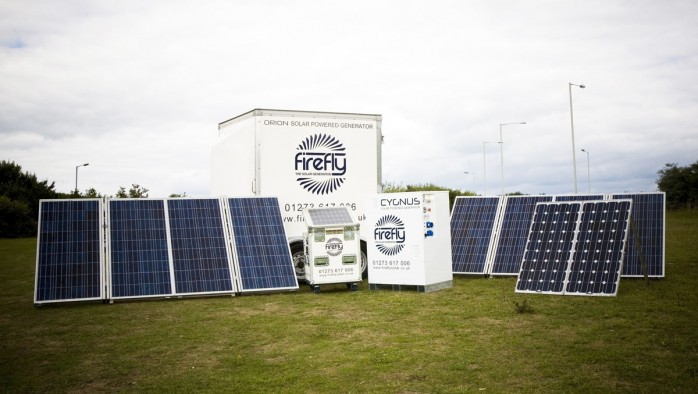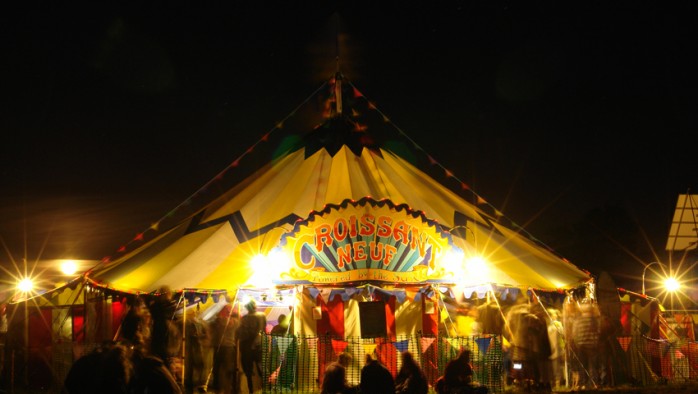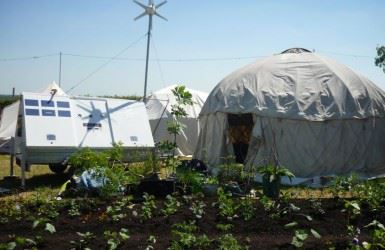Into the Great Wide Open (ITGWO) is a Dutch Festival with an audience of 7,000, which takes place on the Island of Vlieland on the northwest coast of the Netherlands. In 2016, they switched from diesel to 2nd generation biofuels (fuel derived solely from recycled organic waste matter, distributed and sold by the company GoodFuels) to power the generators used at the festival, reducing the amount of CO2 produced in the onsite energy production of the festival by 85%.
The organisers of ITGWO are committed not only to making their festival sustainable, but to exploring how festivals can be used as a catalyst for bigger societal changes. In order to do this they set up a foundation, in 2013, called Lab Vlieland through which they pioneer and develop sustainability projects in the temporary world of their and other festivals, then find ways to implement their successes on a wider basis; first as a permanent part of island life in Vlieland, then to the mainland with the ultimate goal of speeding up global transition to a sustainable society.
Their switch from diesel to biofuel was taken as an intermediary step on their journey to sustainability. Biofuel use has many implications, which must be considered, and they realise that it is not a perfect solution. Ideally they would like to establish a grid connection and power the festival via the mains on a green energy tariff. However, for now this is not a viable option; festivals have very high peaks of energy demand necessitating large connections — these are expensive to install and run partly due to the nature of Dutch energy law, which means Energy Providers have inflexible charging structures that do not account for temporary connections with fluctuating demand.
Provenance is also an issue that means biofuel is not a long-term solution; despite the integrity of their sourcing — using fuel which comes only from organic waste streams — Lab Vlieland is aware that the total organic waste matter volume is not high enough to meet future demands for the biofuel it is used to produce. Biofuel is also more expensive and there are additional costs for transport. Despite these drawbacks and considerations the use of biofuels is a great step forward in terms of reducing fossil fuel use and CO2 emissions from the event.
Lab Vlieland’s first hurdle in implementing their switch was to find a biofuel source that is reliable and ethical and that their generator supplier, F&L, was willing to use in their machines. ITGWO/Lab Vlieland have a good relationship with F&L, who they have worked with since 2009 over 8 editions of the festival. F&L are a small progressive firm, meaning lines of communication are short and creative solutions are relatively easy to implement and they agreed to trial the switch provided the biofuels quality was high enough. In the end a biofuel (B100) from ‘Good Fuels’ was chosen for it’s quality, reliability and ethical means of production.
The use of biofuels in diesel generators is not completely straightforward, normally generators are hired partially full from the previous event and are returned in the same way, so the event only pays for the diesel they have used, and organisers don’t have to worry about predicting fuel use accurately — they can take extra fuel and return the excess, only paying for what they use. When using biofuel the generators needed to be completely drained of fossil diesel before they could be filled to ensure pure biofuel use (mixing is technically not a problem, except that you are still burning a mix of fossil and non-fossil fuels) – and they needed to be returned empty.
This not only involved extra logistics but also meant that Lab Vlieland had to accurately predict how much biofuel the festival would need, as any left over would have to be stored or would be wasted. They partially solved this problem by agreeing to sell any remainder to another festival looking to move to biofuel but in the end they were so accurate in their estimates that this measure wasn’t necessary.
The next issue that they came up against was transportation: Land infrastructure is entirely fossil fuel orientated; diesel can be acquired from the nearest pump to the festival site and transported in the containers that it is then stored in for the duration of the festival. The biofuel had to be transported from much further away and then transferred into separate storage containers incurring extra costs and planning.
The saving of 85% of CO2 emissions from fuel use in onsite energy production in 2016 compared to 2015 would have been higher but in 2015 ITGWO used significantly less diesel than average due to bad weather and resulting stage closure. They also used 500 litres of fossil diesel onsite because the rental agency would not agree to use biofuel in their onsite vehicles (forklifts etc.).
ITGWO used 8,000 litres of biofuel in 2016, at 40 cents more per litre than diesel, plus €800 for transport logistics resulting in a €4,000 spend compared to diesel— a cost which will hopefully be mitigated in the future as more festivals follow suit and infrastructures, generator suppliers and biofuel providers adapt to suit the growing market.
For ITGWO the environmental benefits outweighed the financial implications of the switch but they continue to search for more efficient means to power their festival including ongoing negotiations with the government regarding reforms to Dutch energy laws to make it cost effective for temporary events to run from the grid.

